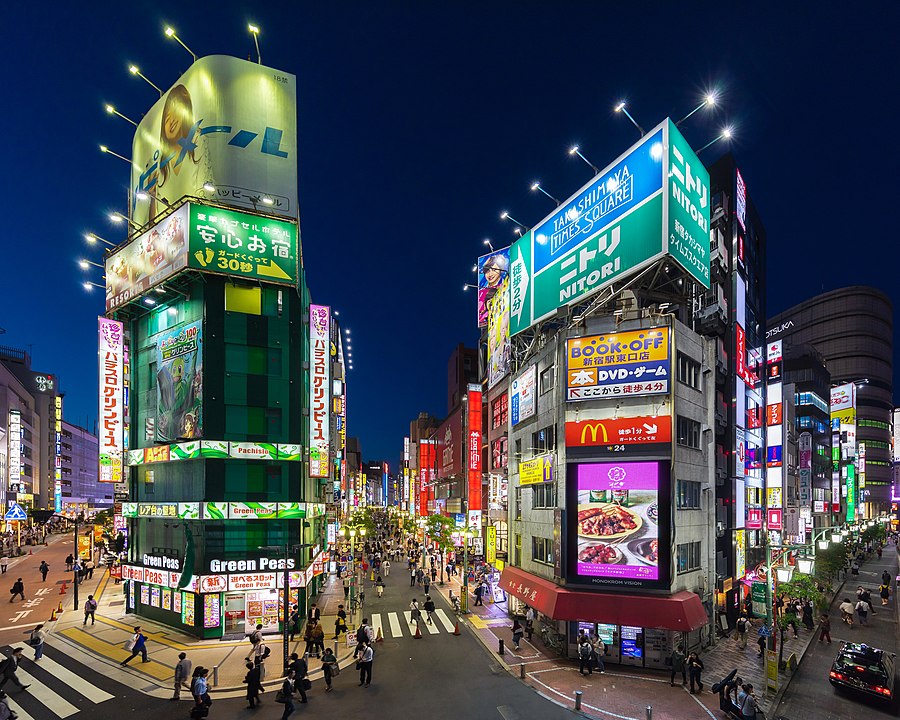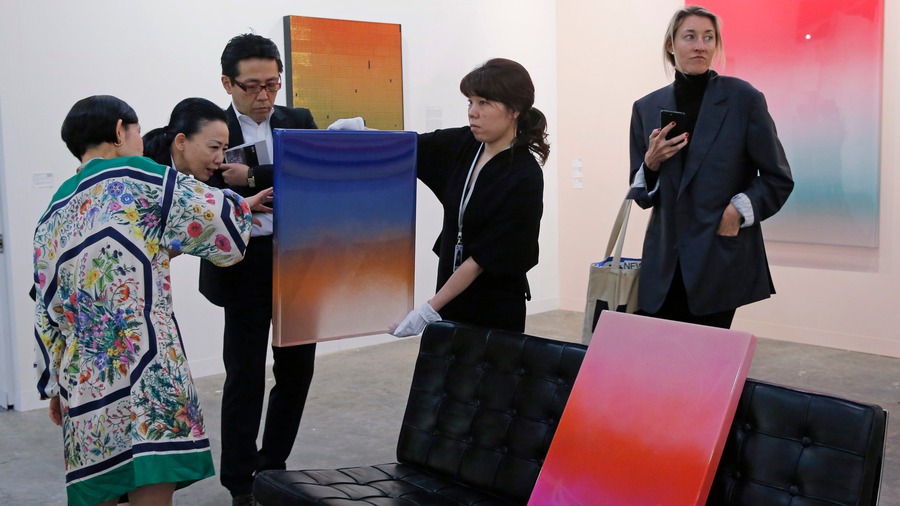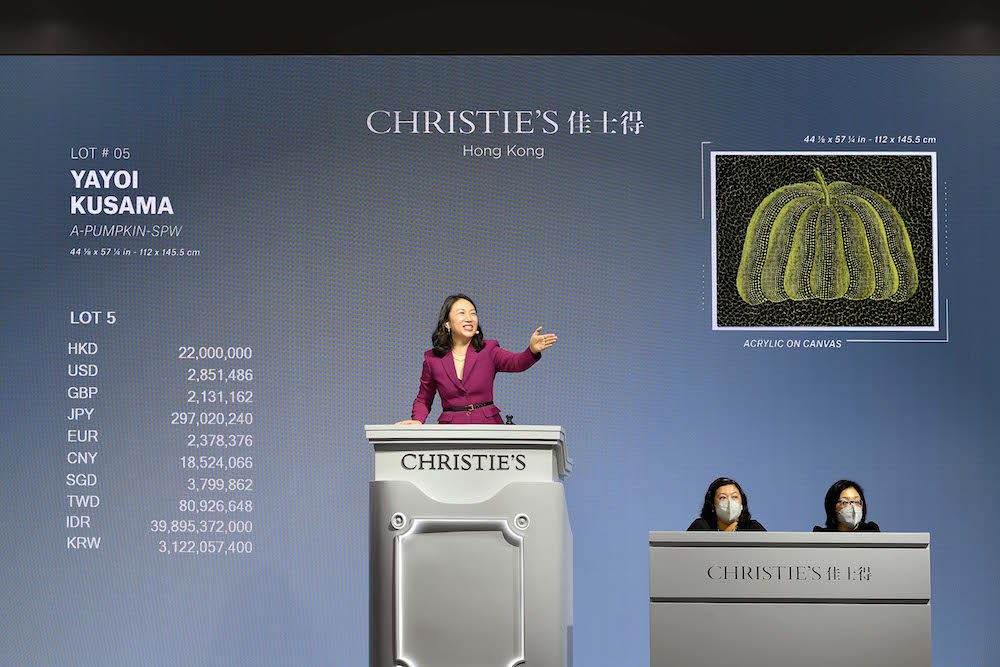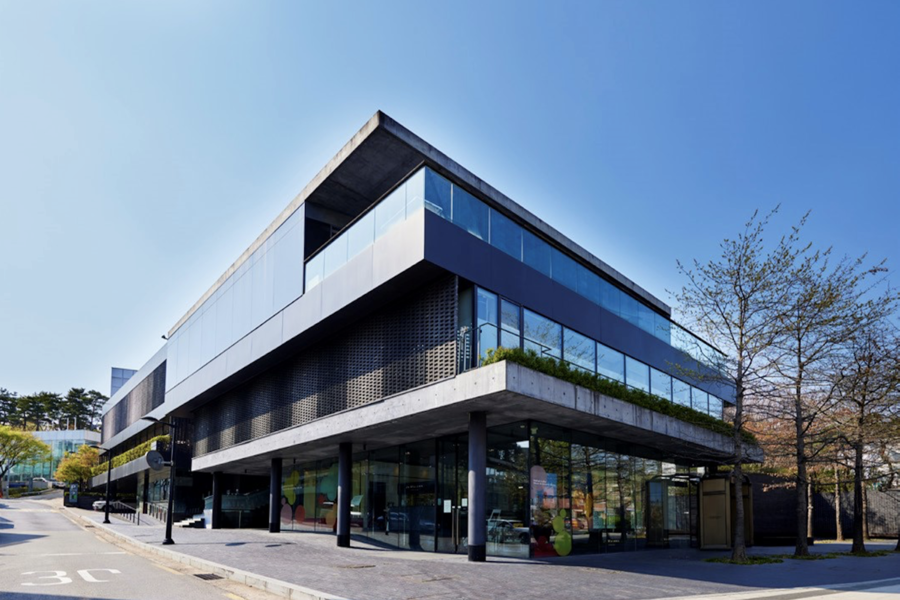Join Us!
To stay up-to date on the latest Art Terms news,artworks, artists and exclusive offers. Sign up now
[NEWS] Japan Reworks Tax Structure in Push to Become Arts Hub
May 5, 2021

Entertainment district in Shinjuku, Tokyo, Japan. Photo: Basile Morin/Wikipedia Commons.
Japan has altered its tax laws to encourage galleries and fairs to expand into the country, and is seeking other paths to becoming competitive in the global art market, Nikkei Asia reports. The effort comes as Hong Kong, a major arts hub on par with New York and London, grapples with increased use of a national security law that could have a chilling effect on artistic expression.

Staff members show works by Japanese artist Mika Tajima to potential buyers at Art Basel in Hong Kong in 2019. © AP
A rising force in the art market in the late 1980s thanks to its economic prosperity, Japan now accounts for just 4 percent of the worldwide art market, compared to China overall, which commands 20 percent, owing to sales mainland collectors and those in Hong Kong, which hosts an annual iteration of Art Basel, the world’s largest art fair. As well, Hong Kong has in recent years invested heavily in major arts institutions such as the soon-to-open M+ museum and the burgeoning West Kowloon Cultural District, and this is widely perceived as having boosted the art market there.

Christie's auction in Hong Kong in December 2020
Photo courtesy of Christie's
Christie's Yamaguchi said that achieving a scale in Japan similar to Hong Kong's role in bridging artists, dealers and customers is very challenging. He suggested that Japan also consider changes to its inheritance tax system. "Facilitating art deals with customs is meaningful, but it is necessary first to make a foundation of art in the country," Yamaguchi said. "For example, opening a branch of a globally known museum, just like how Spain's Bilbao has Guggenheim, can attract not only tourists but also people involved in art."
To its advantage, Japan boasts the third largest number of dollar billionaires globally, behind the US and China, and remains a strong draw for foreign tourists. This past February, Tokyo officials, led by Taro Kono, minister for regulatory reform, moved to allow art galleries, auctions and art fairs to traffic art being sold or displayed through the country’s free port zones, saving them potentially millions of dollars in duties and tax payments.

Pace Gallery is opening an expanded gallery space in Seoul in May.
Photo: Sangtae Kim, courtesy of Pace Gallery
"These changes [in Japan] are just going to release a huge amount of excitement that will draw response from the art world as long as collectors appear," Marc Glimcher, the chief executive of Pace Gallery, one of the mega-galleries based in New York, told Nikkei Asia in a recent interview. Pace, which in 2019 shuttered its Beijing outpost amid US-Chinese trade woes, is expanding its footprint in Seoul and is “considering” entering Japan, Glimcher acknowledged. “If Japan truly reopens,” he said, “it has the potential, once again, to become one of the centers of the art market in Asia.”

| Prev | [CRITIQUE] 심현섭: 공공미술 3/ 모더니즘과 공공미술의 불화 |
|---|---|
| Next | [FAIRS] Art Beijing 2021 |
| List |